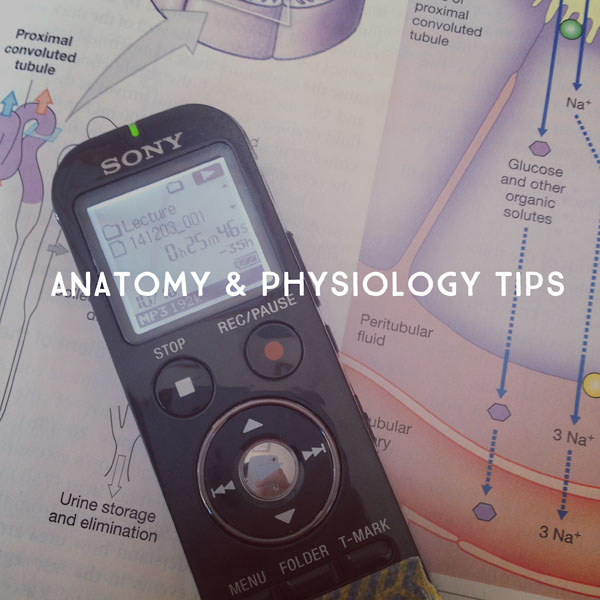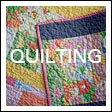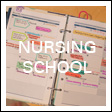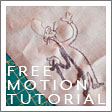
If you are a pre-nursing or pre-med student you’re going to hear a lot of horror stories about how A&P is the worst hardest thing ever. And they’re a lot true. But if I can get an A in A&P, anyone can! Here are the things that really helped me ace Anatomy & Physiology and kept it from being the GPA-wrecker I thought it would be. My test scores were all above 97% and I got 100% on the final A&P2 practical exam. I’m not a natural when it comes to the sciences, so I know my success was because of these study techniques!
- Meet Professor Fink. This guy is your new best friend. His videos are your new [insert show people watch these days here]. (I would have provided a show name, but I’m still watching Greys Anatomy. Which is a show I watched the FIRST time I was in college.) I found it so helpful to see a different take on whatever subject we were learning. Even if he sometimes went into more detail than my professor on a topic, it was incredibly helpful to hear the more detailed version to understand the simpler version. I highly recommend watching the video before the lecture. In other classes I would read the chapter before going to lecture, but the A&P textbook was just too dense. Watching Professor Fink’s lecture first and getting introduced to the topic meant that I was able to follow along with my actual professor’s lecture instead of just sitting in stunned silence. I watched each lecture several times, but always tried to do it once before class (I noticed a huge difference when I would get behind and have to watch the video after my lecture). I like to knit, so I would watch his lecture while knitting, which made it more enjoyable. You can also watch them while folding laundry, making dinner, doing the dishes…any chance you get.
- Break down and buy a dumb micro recorder. (And then put a piece of tape on it with your email address written on it for that inevitable time when you walk out of class without it.) You can listen to the taped lectures in the car and in the shower. If you’re looking at your notes and wondering what exactly he said that prompted you to write [ ], you can go back and check. It’s also great to be able to help out a friend if they’re running late or miss a lecture!
- Get this iPad app. It was included with my textbook with A&P 1 but I ended up using it a bunch for A&P 2. It not only allows you to look at the structures at home, but if you tap on a structure it will pronounce the name of it for you. So much of A&P is made harder by the fact that it’s impossible to feel confident asking questions about things that you don’t know how to pronounce.
- Don’t study, revise. In England they don’t call it “studying,” but “revision.” Revision isn’t a passive process like studying notes, but rather an active revising of your notes into shorter and shorter versions. As you cliff-notes it down from 20 pages to 10 to 5 to 2 you internalize it all. I think a lot of students get caught up in having 20 different colored pens and fancy flash cards, but at the end of the day my simple pen and paper method did the trick. I usually ended up writing the notes about four times. The first time, in lecture, then later that night or the next day I would rewrite my lecture notes. The before the test I would rewrite them again, and then a final time. Standing outside a classroom before a test I usually have a simple piece of paper with the little triggers that will help me remember all the rest of it. In the UK they have preparing for tests down to a science. If you’re not getting the results you want with looking at your initial or even second draft notes, try revision. 🙂





















zerita - prof finks lecture is it for nursing or med students?
Traci - It would be the same for either. 😉